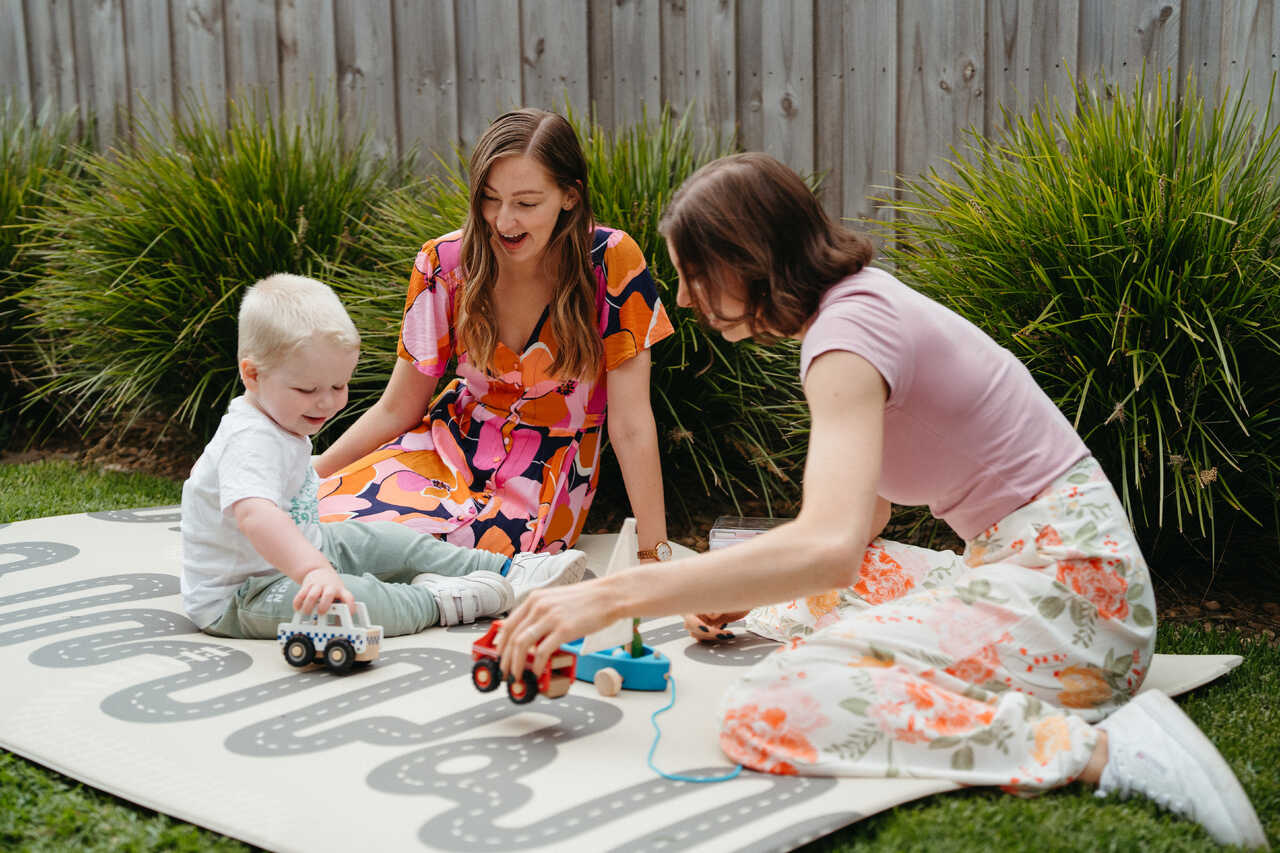Seeds For Thought
Notes from the Director’s Desk
How to Find the Right Allied Health Provider: Exploring Beyond the Credential
Board Certified Behaviour Analyst (BCBA), speech pathologist, occupational therapist (OT), psychologist. These are titles awarded to people who have gone through certain studies, training, examinations, and passed other standards. So, is the job title enough for us to trust these professionals are right for our children? Or should we be asking more questions to find the best providers?
Let me phrase it another way. General practitioner (GP), paediatrician, teacher, even an electrician. These are also titles awarded to people who have gone through certain studies, training, examinations, and passed other standards. How have your experiences been with these professionals? Is it always the same?
Sometimes you get lucky and the first person you meet is the best one. Other times not so much. I dare say, the title is not enough.
So, how do we find the best allied health professionals?
I’ve created a list of questions you can ask before starting services, to find high quality professionals, to find the allied health professionals who are going to be there to serve your kids best. These are the questions I would be asking if I were looking for services for my son.
Questions to help you find the best allied health professionals (and reasons why they’re important!)
Are you neurodiversity affirming and what does that mean to you and your practice?
A good practice is neurodiversity affirming. Practitioners understand that neurodiverse people process the world in unique ways, and accept all forms of communication and expression as valid. Goals are created that are meaningful for the learner, that is, they are not designed simply to make the learner fit into a society that was not designed for them to thrive.
Competence is presumed and a strength based approach is used. They listen to the neurodiverse population and take proactive steps to promote inclusion, acceptance, and respect of neurodiverse people.
If you’re not convinced by their answer, here are some follow up questions to help you find out if they’re neuroaffirming:
Do you target eye contact?
Neurodiverse adults have consistently said, that for some neurodiverse individuals providing eye contact takes a lot of energy and effort. This detracts from their ability to concentrate on other things, such as what is being presented to them. For these individuals, using eye contact decreases their attending skills. For others, including some autistic people, they say using eye contact is not an issue.
In my opinion, it is preferable to teach the skill to attend to others, rather than teach someone to simply appear as though they are attending, especially when doing so may detract from their ability to attend!
How do you respond to stimming such as hand flapping, spinning, or rocking?
Autistic adults report that stimming, if it’s not harmful to themselves or others, can be a great way to their regulate emotions. Autistic adults who were taught not to stim as children, because it looked funny to others and it wasn’t the norm, are now relearning to stim as adults because it is so important and helpful for them, particularly in emotion regulation.
Do you use restrictive practices?
As a Board Certified Behaviour Analyst who not only has training in but also experience working with children with severe aggressive behaviours, using restrictive practices is rarely part of the best approach. The focus should be on:
- Teaching appropriate replacement behaviours that meet the same needs the undesirable behaviour(s) is meeting
- Using preventive measures
- De-escalation tactics when the behaviours do occur
- And working to educate all other providers and key people in the child’s life on the best strategies to maintain a consistent, ethical, and effective approach to change behaviours when required.
There are a lot of hoops providers have to jump through to legally be able to use restrictive practices. Unfortunately, this hasn’t stopped some places and children have suffered. So, ask the question in advance and pay close attention to their response.
Australian legislation on restrictive practices: https://www.legislation.gov.au/Details/F2020C01087
What qualifications do you and your staff hold?
I know I just said having the qualification isn’t enough! But it is a start to finding the right person. We wouldn’t take medical advice from just anyone (even Doctor Google should be taken with a grain of salt and checked by someone with the proper qualifications) if we want the correct information, and it’s the same with allied health professionals.
To have certain titles requires the professional to go through certain training. For example, a Board Certified Behaviour Analyst (BCBA) such as myself has completed a Masters degree in the field, undergone supervised experience hours, and passed an exam to acquire Board Certification. To maintain certification, we must meet continuing education requirements, adhere to ethics requirements, and recertify every two years.
But did you know there are no requirements for someone to call themselves a behaviour therapist? Or a positive behaviour support practitioner? Even an ABA therapist. For those undergoing verified formal training in the behaviour analytic field, our ethical code prevents us from using certain labels until we are qualified. But for the general population, who is stopping them from giving themselves these labels when they’re not properly qualified? In Australia, the answer is no one. You can go around and call yourself a child therapist, a behaviour analyst, an ABA therapist, a positive behaviour support practitioner, (the list goes on), and unfortunately, no one is stopping you. You can even get NDIS funding for your ‘practice’. A BCBA oversees a team of paraprofessional behaviour technicians (either registered or not), but they must be provided with ongoing supervision (see next question for more on this), and are not qualified to write behaviour programs or oversee learner programs.
If you’re looking for behaviour services, Board Certified Behaviour Analyst (BCBA) is the standard and leading credential in Australia. Although this may one day be overtaken by the Certified Behaviour Analyst qualification: A new Australian qualification and currently optional for providers, but is the start of higher regulation in the Australian behaviour intervention and positive behaviour support field. The Raising Children Network (an Australian government website) has information on professionals practising ABA too - Scroll down to Who practises Applied Behaviour Analysis (ABA)?
Why did you get into this field?
Having worked in the field for over a decade, I have seen how the NDIS has allowed more people to access services their children require. Before the NIDS, my clients were either very well off, had put aside money to buy a house and instead used it for their child’s therapy, or were not able to access services. It was a sad day when a client had to cease services solely due to financial restraints.
The NDIS rollout has allowed greater access to those who require services. My clients now come from a diverse range of socioeconomic backgrounds. It’s not a perfect system, but I have seen how it has transformed the lives of those who would not have had access to services before.
With the NDIS, as with any large amount of money, come people who try to take advantage of the system for monetary gain. There are companies who care more about their profit than their learners. Those who are working in the field to make meaningful differences for their learners will have a great answer to this question, with their answer revolving around wanting to help others.
How do you train your staff?
Employing paraprofessionals (someone to whom particular tasks can be delegated, but is not a fully qualified professional) allows BCBAs to work with multiple learners and makes therapy more cost effective. In the behaviour field, these paraprofessionals, usually called behaviour technicians / behaviour therapists / behaviour interventionists, work directly with our learners, so the training they receive is essential to effective and gold standard services. How a company trains these staff will tell a lot about their values - those who provide ongoing one:one hands on training with therapists and each client, invest a lot of time in their staff, and have better learner outcomes. Those in it for the money (and be aware, those with NDIS funds are targets for people who just want to make money), will provide minimal to no hands on training. Or they may provide more training at the start of the therapist employment, but not ongoing.
For example, at Cheeky Raspberries, we are in it for the kids and our therapist training reflects this. All our therapists, regardless of their experience level, complete theory training with myself (a Board Certified Behaviour Analyst with additional formal qualifications from the Behaviour Analyst Certification Board to supervise) before starting with learners. Therapists then receive 3-6 hours of initial hands on training with each learner they are working with, where we run through the individualised learner programs and effective, ethical, and fun child-led teaching strategies. Ongoing, behaviour therapists receive monthly in person training with each of their learners in each setting they work in (e.g., if they’re working with 3 learners, they will have about 9 hours of in person training per month, more if required). In person ongoing training is essential for paraprofessionals.
At Cheeky Raspberries, therapists are also included in team meetings for all their learners and are encouraged to contact their supervisor (myself) continuously with any questions and updates they have. Our therapists also complete weekly program updates for our learners. This does not involve any program writing or changes, but does include the material preparation and updates on the program sheets I have written, allowing them to become very familiar with the updated targets they are running. Updates are helpful, but not enough – ongoing in person training is essential. (And yes, I’m also talking about your senior behaviour therapists - those who have been practising for a longer time).
What are you currently focusing on for your ongoing education?
All allied health fields are constantly updating. New research is published, and standards increase. We shouldn’t have to only hire recent University graduates to have the most up to date scientific knowledge from our practitioners. All practitioners should be upskilling and staying up to date with the latest research. If your professional is a BCBA, they will have continuing education requirements, where they must complete education from Authorised Continuing Education (ACE) providers.
If I have questions about the program or goals, can I talk with the supervisor directly or should I talk to the therapists?
This question can help you find out who's there for your child, and who is there for the money. I have had multiple clients switch to working with me after coming from providers where parents and carers were not able to talk directly to their child’s program supervisor.
Do you prefer to work exclusively or with other providers?
When the care team are all on the same page and have clear expectations, it’s consistent for the child too. If there are different expectations it becomes incredibly confusing and frustrating. Working together is essential for the most effective support.
Do you provide any educator or parent training?
This will clue you into the allied health professional's ability to work as part of a team. If they can give training on what they offer, it will allow the other key adults in the child’s life to have a consistent approach.
For how long do you work with children and what is the discharge process?
Outcomes are different for all children. When children have a consistent approach, when they have access to services that suit their individual support requirements, and when services are gold standard, outcomes improve. At Cheeky Raspberries our goal is to provide support for children where required, and teach them to thrive independently amongst their peers, so that support is no longer required. So don’t expect a set time frame as the answer to this question, but knowing how long they’ve been with clients in the past can be useful, so you have a clearer idea in advance of what you’re signing up for. Providers should only be working within their scope, so ask if there is an age or time when discharge would occur without you initiating it. Some providers will stop when a child hits a certain age or skill level, so if you may still be with them at this time and require ongoing support, it’s good to know what the process would be.
Best providers usually offer free meetings before you sign on to their services to ensure you are the right fit for each other, allowing you to ask these questions. As a director and allied health provider who is in it for the kids, these are green flag questions and I’d be more than happy to take the time.
To read more on finding quality services and supports, check out the Raising Children Network, and the National Guideline For supporting the learning, participation, and wellbeing of autistic children and their families in Australia.







